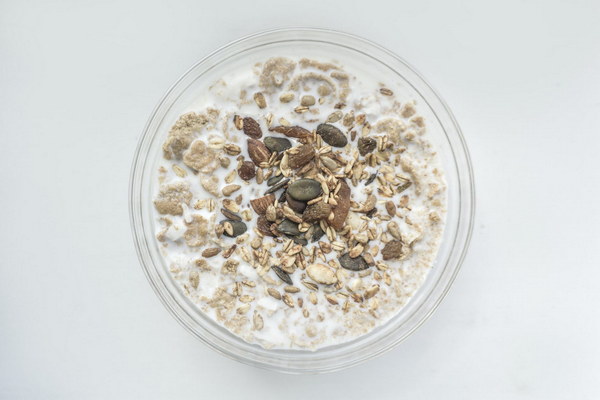Can Ginger Water Nourish Your Lungs Exploring the Health Benefits of Ginger Tea
In the realm of traditional medicine, ginger has long been celebrated for its medicinal properties. One of the most frequently asked questions about ginger is whether drinking ginger water can help nourish the lungs. This article delves into the potential benefits of ginger water for lung health and explores the scientific evidence behind these claims.
Understanding the Role of Ginger in Lung Health

Ginger, scientifically known as Zingiber officinale, is a root that has been used in various forms of traditional medicine for centuries. It is believed to possess anti-inflammatory, antioxidant, and expectorant properties, which may contribute to lung health.
Antioxidants and Lung Protection
One of the primary reasons ginger is thought to be beneficial for the lungs is its high content of antioxidants. Antioxidants are substances that help protect cells from damage caused by free radicals, which can lead to inflammation and tissue damage. Chronic inflammation is a known factor in respiratory conditions such as asthma and chronic obstructive pulmonary disease (COPD).
Anti-Inflammatory Effects
Ginger contains compounds known as gingerols and shogaols, which have been shown to have anti-inflammatory effects. Inflammation in the lungs can lead to symptoms such as coughing, wheezing, and shortness of breath. By reducing inflammation, ginger may help alleviate these symptoms.
Expectorant Properties
Ginger is also known for its expectorant properties, which means it can help loosen and expel mucus from the respiratory tract. This can be particularly beneficial for those suffering from colds, flu, or other respiratory infections.
How to Prepare Ginger Water
To prepare ginger water, simply follow these steps:
1. Peel a fresh ginger root and finely chop it.
2. Add the chopped ginger to a pot with water and bring it to a boil.
3. Reduce the heat and let it simmer for about 10-15 minutes.
4. Strain the water and allow it to cool.
5. Add honey or lemon to taste, if desired.
Scientific Evidence
While the traditional beliefs about ginger's benefits for lung health are widespread, scientific evidence supporting these claims is somewhat limited. However, several studies have been conducted to explore the potential health benefits of ginger:
1. Asthma: A 2014 study published in the journal Evidence-Based Complementary and Alternative Medicine suggested that ginger could have beneficial effects on asthma symptoms. The study found that ginger extract reduced airway inflammation and improved lung function in asthma patients.
2. COPD: A 2016 study published in the International Journal of COPD investigated the effects of ginger on COPD patients. The study found that ginger extract reduced inflammation and improved respiratory function in patients with moderate-to-severe COPD.
3. Respiratory Infections: Another study, published in the Journal of Ethnopharmacology, examined the effects of ginger on respiratory infections. The study suggested that ginger could be effective in treating respiratory infections, particularly those caused by bacteria.
Conclusion
While there is some evidence to suggest that ginger water may have benefits for lung health, more research is needed to fully understand its effects. However, incorporating ginger into your diet is unlikely to harm you and may offer additional health benefits.
If you are considering using ginger water to improve your lung health, it is important to consult with a healthcare professional, especially if you have a pre-existing respiratory condition. They can provide personalized advice and monitor your health to ensure that ginger is safe for you to consume.
In summary, while drinking ginger water may not be a cure-all for lung conditions, it could be a complementary approach to traditional treatments. As with any dietary change, moderation is key, and it is always best to consult with a healthcare provider before making significant changes to your health routine.









